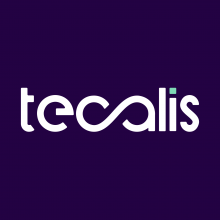
There are 15 Companies in Madrid
that provide Angular Development Services!
Although Madrid is not Spain’s largest tech center, in the past 7 years it grew dramatically and proved that it’s worth investing in companies and startups located there. The average funding the city receives for startup programs is around $360M/year
Discover Top IT Companies in Madrid specialized in Angular and other related services. Find the best IT service providers for your projects.
Angular (formerly AngularJS) is a popular open-source web application framework maintained by Google and a community of developers. It's used for building dynamic, single-page web applications (SPAs) and web-based applications in general. Angular provides a structured and organized way to create complex web applications by extending HTML with additional features and enabling the development of interactive, responsive, and maintainable front-end web interfaces.
Handpicked companies • No obligation to hire • 100% risk-free
Featured Companies in Madrid
This month, the following Angular Development companies managed to provide an outstanding service and support. It's worth taking a look.
Reinvent, optimize and simplify any business process. AI solutions to grow, develop and expand while being more productive, efficient and secure.
Appetite Creative: The digital experiences studio - connecting brands to today’s audiences
Explore Top Angular Development Companies in Madrid
Fire Bee Techno Services is an ISO Certified Blockchain and AI Development Company In india and across the world with 13+ years of experience.
Mobirevo is a Leading custom software development agency focused on web, mobile app development & saas application development.
Desarrollo Web Total delivers custom software solutions, specialising in web development, mobile apps, UX/UI, and cloud-based technologies.
Mobivery had a clear goal from the beginning and that was to help our clients create amazing products for mobiles and to assist them achieve their cor...
We take pride in being pioneers in our industry and making a difference in every project we undertake.
Services:
Strategic consulting and e-commerce operations for brands and manufacturers.
We are a web design company that offers: full web design pages, ecommerce, mobile apps, and chat software.
Filter Angular Development Companies in Cities near Madrid
Dive deeper and find the company you need close to you or, from a specific city you prefer. Some of the best companies come from smaller places
Find more Angular Development companies around the world
TechBehemoths is the world's most advanced and user-friendly platform to match IT Companies with real clients without hustle.
The IT Industry in Madrid: General Profile
Although Madrid is not Spain’s largest tech center, in the past 7 years it grew dramatically and proved that it’s worth investing in companies and startups located there. The average fundings the city receives for startup programs is around $360M/year. Even though the amount of money is considerably higher than between 2010-2016, Madrid is far behind in investing real money compared to Europe’s leading tech centers (London $5.65B; Paris - $2.77B; Berlin - $2.67B).
Even so, back in 2019 Madrid was the home of over 1235 startups and now in 2021, the number is probably higher, despite the pandemics. However, these startups in Madrid are small in relatively new and do not attract large investments, which is totally different from Barcelona where tech startups have managed to attract a considerable amount of investors - with almost the same amount of startups the investments rose above $900M in 2019 only.
On the other hand, Madrid and Barcelona are making out of Spain an example in the tech and IT industry. Spain managed to do what France and the UK could not achieve - decentralize the tech market. So now if we put Madrid and Barcelona’s tech stage together, Spain looks like a startup nation with a higher digitalization potential in all fields. Talking about startups, there a series of programs, accelerators, and incubators located in Madrid that power-up the tech scene and develop the business environment. Some of the most notable are Warya Spain, Impact Accelerator, Fundacion Repsol, Fil Rouge Capital, and Wanajump.
Also, there are a series of tech behemoths and international corporations with offices in Madrid - Amazon, Vodafone, Ericsson-Worldwide, Amadeus, and Airbus. After all, Madrid is still Spain’s capital.
When it comes to salaries - we didn’t believe it either, but numbers are numbers, and glassdoor data states that the average wage in IT for professionals in Madrid is even higher than in Barcelona.
Overall, Madrid is a good destination for investors, IT companies, young professionals, and generally for businesses that seek professional digital assistance. If the city will continue its digital transformation will probably become one of Europe’s top tech hubs.
What is Angular and what are its benefits for your projects?
Angular (formerly AngularJS) is a popular open-source web application framework maintained by Google and a community of developers. It's used for building dynamic, single-page web applications (SPAs) and web-based applications in general. Angular provides a structured and organized way to create complex web applications by extending HTML with additional features and enabling the development of interactive, responsive, and maintainable front-end web interfaces. Here are some key aspects and concepts of Angular:
-
Component-Based Architecture
-
Templates
-
Directives
-
Dependency Injection
-
Services
-
Routing
-
Observable and RxJS
-
Modules
-
Testing
-
Cross-Platform
Angular's structured approach, strong tooling, and vibrant ecosystem of libraries and extensions make it a powerful framework for building modern web applications. It is particularly well-suited for large and complex projects where maintainability and scalability are crucial.
Companies may choose Angular over other front-end frameworks for their projects for a variety of reasons, depending on their specific needs and priorities.
-
Google Backing: Angular is developed and maintained by Google. This association often gives companies confidence in its long-term support, stability, and continuous improvement. Google's involvement is seen as a sign of reliability and commitment to the framework.
-
Mature and Established: Angular has been around for a while and has a strong track record of being used successfully in large-scale enterprise projects. It has a well-defined architecture and best practices, which can be beneficial for maintaining and scaling applications over time.
-
TypeScript Support: Angular is built with TypeScript, a statically-typed superset of JavaScript. TypeScript provides better tooling, code maintainability, and catches errors at compile time, which can reduce bugs and enhance code quality, making it attractive to companies that prioritize robust code.
-
Full-Featured Framework: Angular provides a comprehensive set of tools, libraries, and features out of the box, including routing, form handling, HTTP client, and more. This can save development time and effort compared to integrating multiple third-party libraries in other frameworks.
-
Two-Way Data Binding: Angular offers powerful two-way data binding, which allows for automatic synchronization between the data model and the view. This feature can make it easier to develop interactive and responsive user interfaces.
-
Large and Active Community: Angular has a large and active community of developers and a wealth of resources, including documentation, tutorials, and third-party libraries. This can be beneficial for finding solutions to common problems and getting support when needed.
-
Enterprise-Ready: Angular provides features like dependency injection, modularity through modules, and a strong emphasis on testability. These characteristics are well-suited for building robust and maintainable enterprise-level applications.
-
Strict Coding Standards: Angular enforces a set of coding standards and best practices, which can lead to more consistent and readable code. This can be important for companies with multiple developers working on the same codebase.
-
Cross-Platform Development: Angular can be used for building both web and mobile applications. Companies looking to develop applications for multiple platforms may choose Angular for its ability to share code between web and mobile apps using technologies like NativeScript or Ionic.
-
Integration with Backend Technologies: Angular can easily integrate with various backend technologies and APIs. This makes it suitable for projects where the front end needs to communicate with different types of server-side applications.
-
Security Features: Angular provides built-in security mechanisms to help prevent common web vulnerabilities like Cross-Site Scripting (XSS) and Cross-Site Request Forgery (CSRF). This can be crucial for projects with high security requirements.
-
Ecosystem and Tooling: Angular has a rich ecosystem of tools, extensions, and IDE support, including Angular CLI for project setup and management. This can streamline development workflows and improve productivity.
Ultimately, the choice of Angular or any other framework depends on the specific project requirements, the development team's expertise, and the company's long-term goals. Companies evaluate various factors to determine which framework aligns best with their needs, resources, and priorities.














